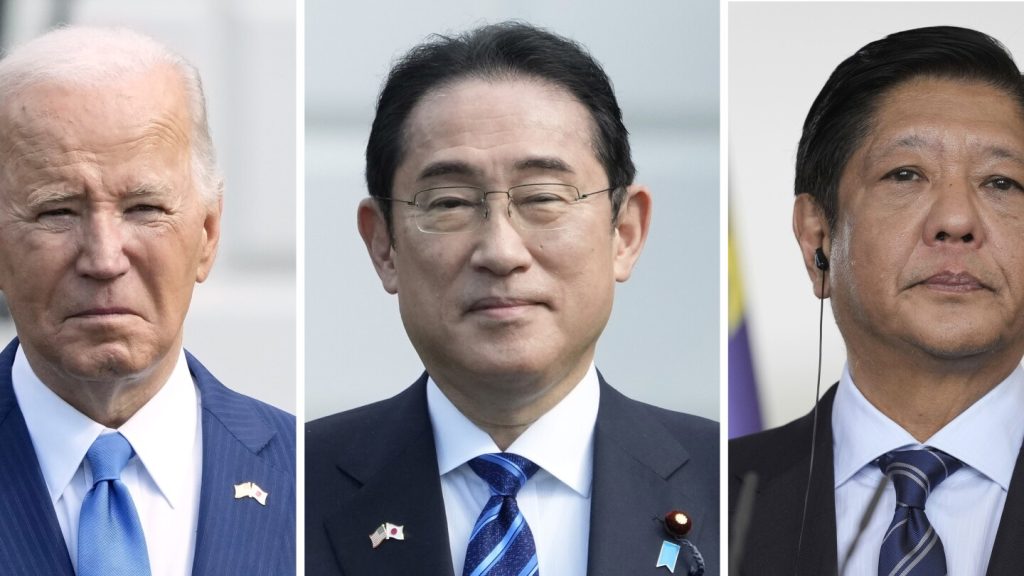President Joe Biden held a trilateral summit with Philippine President Ferdinand Marcos Jr. and Japanese Prime Minister Fumio Kishida at the White House to discuss countering China’s military assertiveness in the Indo-Pacific. The leaders agreed to have their coast guards conduct a joint patrol in the Indo-Pacific this year, following law enforcement drills carried out last year in the South China Sea. The U.S. Coast Guard will provide training to Filipino and Japanese coast guard members during the patrol. This summit highlights the importance of building alliances in the Indo-Pacific region amidst global conflicts in the Israel-Hamas war and Russia’s invasion of Ukraine.
Biden emphasized the transformation of the U.S.-Japan relationship from past adversaries to close allies, working together for peace, security, and prosperity in the Pacific and beyond. The trilateral summit also focused on economic collaboration, with major U.S.-based companies announcing investments in the Philippines. This commitment follows Commerce Secretary Gina Raimondo’s announcement of over $1 billion in new American investments in the Philippines. The United States, the United Kingdom, and Japan have also announced joint military exercises in the Indo-Pacific in 2025, demonstrating their collective efforts to strengthen security in the region.
Japanese Prime Minister Kishida’s address to U.S. lawmakers emphasized the need to enhance the partnership between the U.S. and Japan amid tensions in the Asia-Pacific region. China’s provocative actions in the Pacific have raised concerns, leading the leaders to address these issues during the summit. The aim is to counter China’s attempts at intimidation and reinforce the message that China is an outlier in the neighborhood. The ongoing disputes between China and the Philippines over the South China Sea and with Japan over the East China Sea have been sources of contention in the region.
President Biden’s call with Chinese President Xi Jinping expressed concerns about China’s operations in the South China Sea, particularly hindering the Philippines’ resupply efforts in the Second Thomas Shoal. The trilateral agreement between the U.S., Philippines, and Japan aims to maintain peace and security in the South China Sea and ensure freedom of navigation. Chinese officials have rejected criticism of their actions in the region, asserting their territorial sovereignty and maritime rights. Biden has prioritized improving relations with the Philippines since Marcos became president, with a focus on maintaining a strong alliance amidst growing concerns about China’s coercive behavior.
The relationship between the U.S. and the Philippines has fluctuated over the years, with human rights concerns during Rodrigo Duterte’s presidency leading to tensions. Marcos, the son of the former dictator, initially sought closer ties with China but has shifted towards Washington due to apprehensions about China’s actions. The trilateral summit and increased U.S. access to bases in the Philippines demonstrate a commitment to strengthen ties and address shared security challenges in the region. Duterte’s previous handling of extrajudicial killings and Marcos’ predecessor’s alignment with China have shaped the current dynamic between the U.S. and the Philippines. The summit with Japan and the Philippines underscores the importance of regional cooperation in countering China’s influence in the Indo-Pacific.


